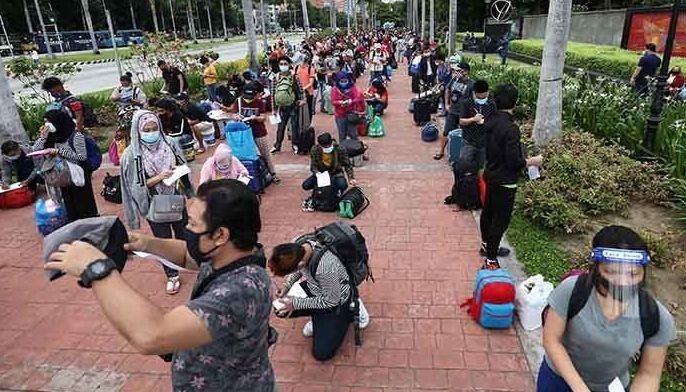MANILA, Philippines — The Department of Interior and Local Government on Friday said that it is still waiting on the government to release funds for the hiring of more contact tracers in the country.
DILG Undersecretary and Spokesperson Jonathan Malaya during today's Laging Handa Briefing confirmed that they have not yet received funds from the Department of Budget and Management for the additional hires.
Related Stories
"If it were up to us, we would have hired the additional contact tracers yesterday, we all know how valuable contact tracing teams are right now," he said in Filipino.
Contact tracers track down those who have recently been in close contact with a person infected with COVID-19—a key strategy that can further reduce the spread of infection, if done successfully.
Malaya said that there are more or less 50,000 contact tracers in the country, and the DILG is hoping to start hiring around 50,000 more by the end of the month.
"We have suggested regulations which we submitted to the Department of Health. We agreed that we will [first] prioritize graduates of medical allied sciences, and second, graduates of criminology and similar courses, and, of course, if these are not available, the third priority will be graduates of other courses," the undersecretary said in a mix of English and Filipino.
In the meantime, Malaya said those looking to apply as contact tracers can prepare their personal data sheets which is available for download online.
In a report to Congress, President Rodrigo Duterte said there were a total of 54,183 contact tracers in the country as of June 24.
To meet the ideal ratio set by the World Health Organization of one contact tracer for every 800 people, the country would need needs to hire some 80,817 more individuals
However, DILG Secretary Eduardo Año said his agency submitted a proposal to the government’s inter-agency task force on COVID-19 response for the hiring of only 50,000 contact tracers “since the [local government unit] continues to increase the number of their contact tracers and there are also volunteers from the private sector.”
The government previously announced that it was planning to spend P11.7 billion to hire 136,000 contact tracers for at least three months.
Health experts tag slow contact tracing in the Philippines
A representative of the World Health Organization in May warned the national government that its sluggish contact tracing efforts were hampering the country's progress against the novel coronavirus disease.
Speaking at an online forum hosted by the Philippine College of Physicians, Dr. Socorro Escalante, WHO acting representative, said: "We need to push harder and we really need to work harder," urging the government to double down on its contact tracing efforts as it geared towards loosening community quarantine restrictions by the end of May.
By the end of June, a former adviser to the National Task Force against COVID-19 was still sounding the alarm over the slow implementation of contact tracing efforts in the country.
At a forum hosted by the Foreign Correspondents Association of the Philippines, Dr. Tony Leachon said "contact tracing infrastructure is quite late," given that the country has been under the longest coronavirus-induced quarantine period in the world.
"Right now I can tell you we are still in the [process of trying to boost] testing and contact tracing, that should have been started 100 days ago," Leachon said.
As it stands, the country has logged a total of 51,754 novel coronavirus cases with a record-high of 2,539 new infections recorded on Wednesday.
This, only days after the previous record-breaking high of 2,434 on Sunday, and another 2,099 infections on Monday.
A researcher from the University of the Philippines on Tuesday warned that COVID-19 cases could breach 100,000 in the country by the end of August.


